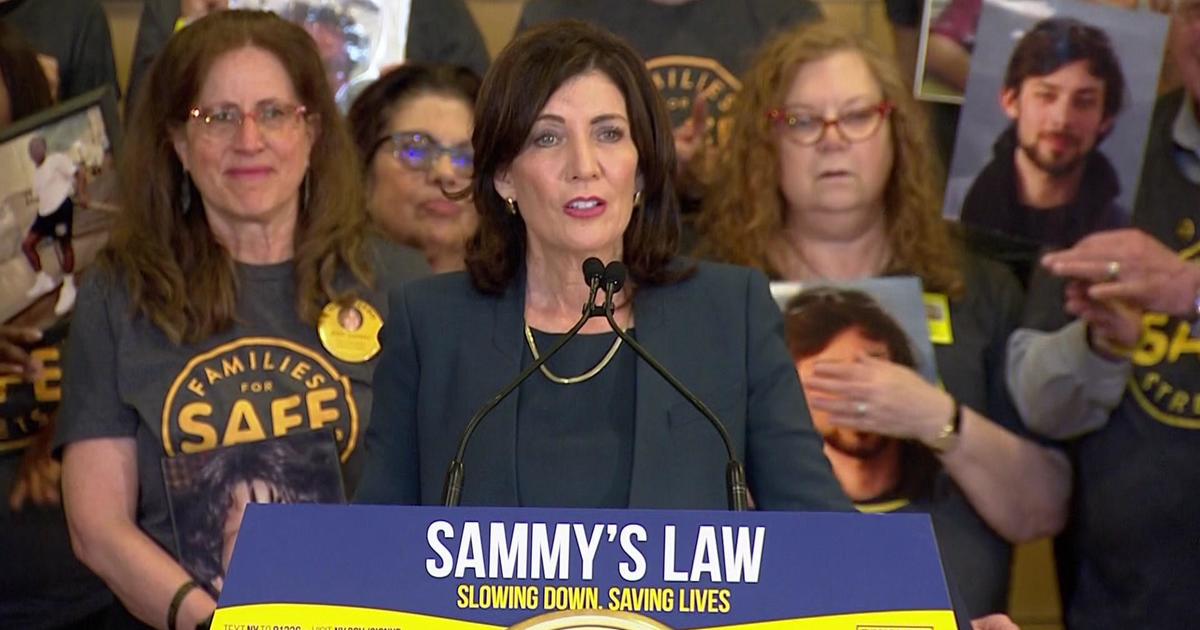Researchers Investigating Health Effects Of Flavored E-Cigarettes In Response To Vaping Crisis
AT A GLANCE
- Vaping Facts Versus Fiction: Nicotine, THC And The New Mystery Illness
- What You Need To Know About Vaping-Related Illnesses
- 'It Was Killing Me': Doctors Save Vaping Victim On Long Island
- 'Our Guidance Is Quite Simple: Don't Do It': Cuomo Declares Health Emergency Over Vaping
- More vaping stories
NEW YORK (CBSNewYork) -- In response to the vaping crisis, the Centers for Disease Prevention and Control opened its emergency operations center Monday to help investigate cases of lung injuries tied to e-cigarettes.
This is part of a widespread effort by the research community to determine the health effects of vaping.
Scientists from Yale School of Medicine are getting the word out about their research on flavored e-cigarettes. Their findings show chemical reactions between the flavor compounds and the liquid nicotine in vaping products.
"So what is being added by the manufacturer is not actually the chemical compounds that the users are being exposed to. There are chemical reactions happening in the liquid," said Julie Zimmerman, a Yale professor of chemical and environmental engineering.
Researchers at Yale showed CBS2's Marc Liverman the custom vaping machine they built to analyze the chemical makeup of flavors.
"Many of these chemicals are known to be inflammatory agents, are known to have toxic effects, but we still have to determine things like what concentration and dose do these inflammatory effects appear," said Suchitra Krishnan, a Yale professor of psychiatry.
Researchers say flavors are a big worry because they attract children and teens to start vaping.
Watch: Vaping Facts Versus Fiction --
The Trump Administration is moving to ban the sale of flavored e-cigarettes and many states, including New York, are taking their own steps.
RELATED STORY: Gov. Cuomo Calls For Ban Of Flavored E-Cigarettes In Vaping Crackdown
A new study from researchers at Duke Health is adding to concerns. It shows a flavoring ingredient that can potentially cause cancer is found in high levels of e-cigarette liquids and smokeless tobacco products. The chemical called pulegone is in menthol and mint products.
"This is really a big health concern for the vapers because they are putting this chemical in much, much higher levels than what is accepted by FDA," said Sairam Jabba, a Duke University researcher.
The FDA banned the chemical as a food additive last year.
Lawmakers in New Jersey are now pushing for a temporary ban on the sale of all e-cigarettes until more research and information is available on the health effects.





